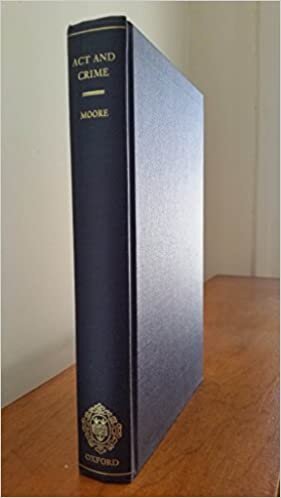
This work provides, for the first time, a unified account of the theory of action presupposed by both British and American criminal law and its underlying morality. It defends the view that human actions are volitionally caused body movements. This theory illuminates three major problems in drafting and implementing criminal law--what the voluntary act requirement does and should require, what complex descriptions of actions prohibited by criminal codes both do and should require, and when the two actions are the "same" for purposes of assessing whether multiple prosecutions and multiple punishments are warranted. The book contributes to the development of a coherent theory of action in philosophy. It provides a grounding in three of the most basic elements of criminal liability for legislators, judges, and the lawyers who argue to them.